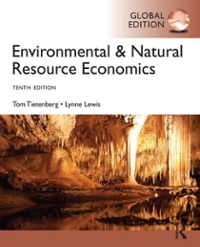Question
The future of work is here: 5 ways to reset labour markets after coronavirus recovery 1. Double down on upskilling and reskilling In recent years,
The future of work is here: 5 ways to reset labour markets after coronavirus recovery
1. Double down on upskilling and reskilling
In recent years, governments, companies and workers have begun to prioritize reskilling and upskilling to better prepare for the disruptions of the Fourth Industrial Revolution. While it was a microscopic invader rather than the rise of the robots that led to the current collapse of the labour market, it has become clear that the fallout of the pandemic will accelerate digitization and automation across a range of industries and sectors. This calls for new investments and mechanisms for upskilling and reskilling, for both deeply human skills as well as digital skills. While the online education and training industry has seen a surge in interest from digitally connected workers in lockdown, it is critical that employers double down on retraining workers and that governments proactively build provisions around upskilling and reskilling into the massive fiscal stimulus they are injecting into economies to best prepare workers for the post-pandemic economy.
2. Identify the jobs of tomorrow
The World Economic Forum offered a view of the Jobs of Tomorrow at the start of 2020. These roles are deeply concentrated among those professions that care for people, support the planet, manage new technologies and communicate products and services: Care Economy, Green Economy, People and Culture; Data and AI, Engineering and Cloud Computing, Product Development; Sales, Marketing and Content. As the pandemic highlights the critical roles that workers in hospitals, grocery stores, schools, and other essential professions play, the opportunities within the Care Economy are expected to increase. Similarly, roles within technology creation and management, e-commerce and the broader knowledge economy are expected to continue to grow. And as governments seek to rebuild their economies, new sources of growth - and jobs - will also emerge from the green economy, science and health research, and digital infrastructure. For developing economies, a proactive new approach to the jobs of tomorrow is even more critical as the global value chains of the past are rethought and with it the manufacturing-driven growth model of the past.
3. Prioritize re-deployment and re-employment
Active support to both at-risk and unemployed workers will be critical for businesses and governments. Many companies have already stepped up to provide support in the short-term to rapidly redeploy furloughed workers from low-demand to high-demand roles, such as those in logistics and care often beyond the boundaries of a single company or industry.
In countries where governments that have systems in place for doing this at scale and in a proactive manner, workers are already faring better than in those that don't. Yet, as governments consider the next set of fiscal stimuli, they must also prioritize labour market services for redeployment and reemployment, including providing job market insights, job market intermediation (match-making services), and job-search assistance. A decade ago, such policies were successfully used to manage the rapid increase in unemployment. Given the more widespread nature of the current crisis, it is critical that such services are expanded and ready to manage the post-pandemic recovery period.
4. Revalue essential work and improve the quality of jobs
It has become increasingly clear that our most essential workers are among those in the lowest-paid and most precarious roles, and that in many developing economies in particular basic social protection is missing for much of the formal and informal workforce.
The period after the Great Depression and the Second World War saw the formalization of the weekend and other workers' rights in the United States and the creation of health and income safety nets as well as widespread education investments across Europe. Yet, as the nature of our economies has changed, laws, standards, and wages have not kept pace with the needs of workers - and, in many cases, their employers. In parallel to managing the urgencies of the crisis it is imperative that governments, businesses and workers' representatives work together to lead a new historical shift in upgrading the protocols that govern our labour markets.
5. A collaborative recovery, reset and rebuild
Collaboration between employers, governments and workers both nationally and globally will be critical to the recovery. At the World Economic Forum, we announced in January 2020 the creation of a Reskilling Revolution platform devoted to improving education, skills and jobs for a billion people by 2030. We have now dedicated this platform to supporting governments, companies and educators to help workers and students through the crisis, exchange best practices and to build back better education, skills and jobs systems for the post-pandemic recovery.
The pandemic crisis has exposed more glaringly than ever before the inadequacies and inequalities in the system of the past. Yet it has also refocused the minds of global leaders on the fundamental value of human life, human potential and human livelihoods. This is the window of opportunity to invest in our most precious asset: our human capital.
What are the strengths and limitations of the '5 ways to reset labour markets' suggested by above post?
Step by Step Solution
There are 3 Steps involved in it
Step: 1

Get Instant Access to Expert-Tailored Solutions
See step-by-step solutions with expert insights and AI powered tools for academic success
Step: 2

Step: 3

Ace Your Homework with AI
Get the answers you need in no time with our AI-driven, step-by-step assistance
Get Started


